Abstract
We describe here a new method for the electron microscopic mapping of sequence homology in nucleic acids. Specific segments of the T7 chromosome have been isolated following digestion with the restriction endonuclease from Hemophilus aegyptious (Haey). Denatured segments are annealed to the l-strand of T7 DNA; treatment of the hybrid with glyoxal allows only guanosine residues in the single-chain region to the reacted, producing an adduct which will no longer hydrogen bond with its complement on the r-strand. When the segment is displaced and the glyoxalated l-strand allowed to renature with the r-strand, "H" shaped structures are produced in which the duplex region corresponds to the position of sequence homology with the segment. The conditions employed for glyoxalation do not detectably disrupt duplex regions as small as 400 base pairs. This procedure should be generally useful for observing sequence homology in more complex DNA molecules containing duplex regions which can be specifically enriched for and their arrangement determined by electron microscopy.
Full text
PDF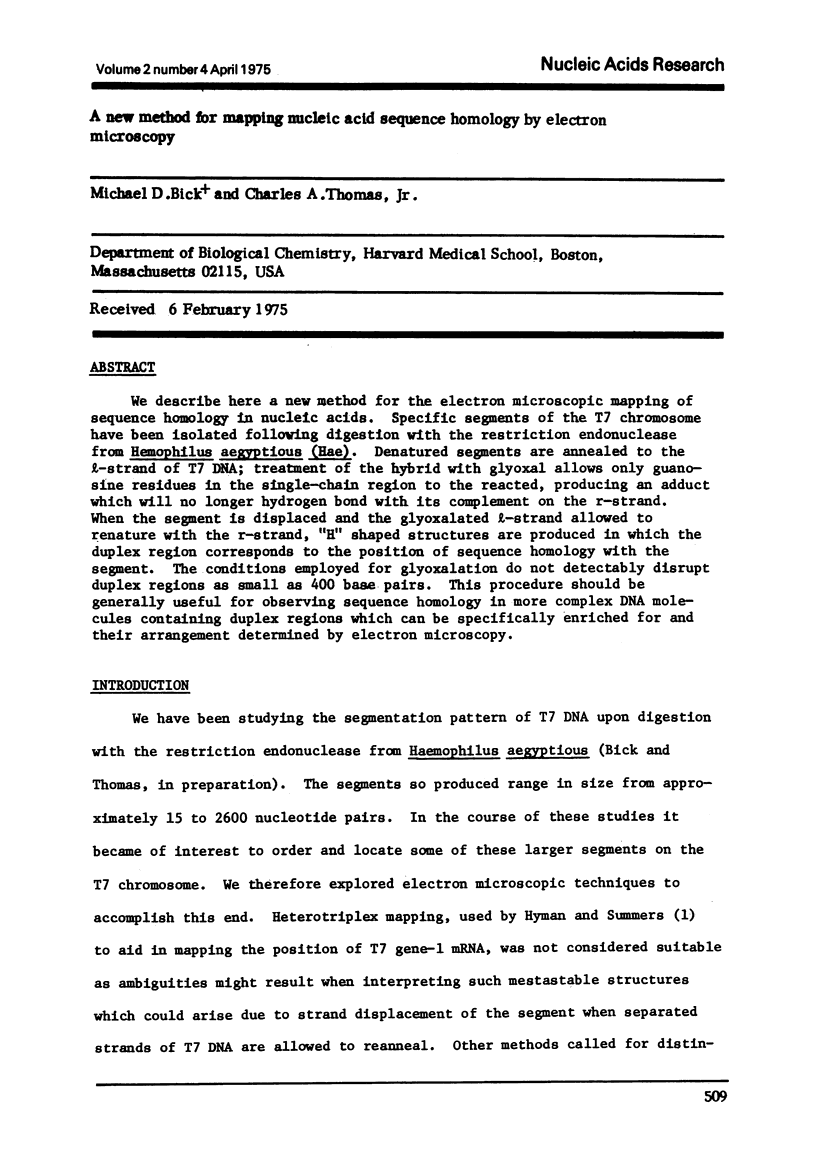
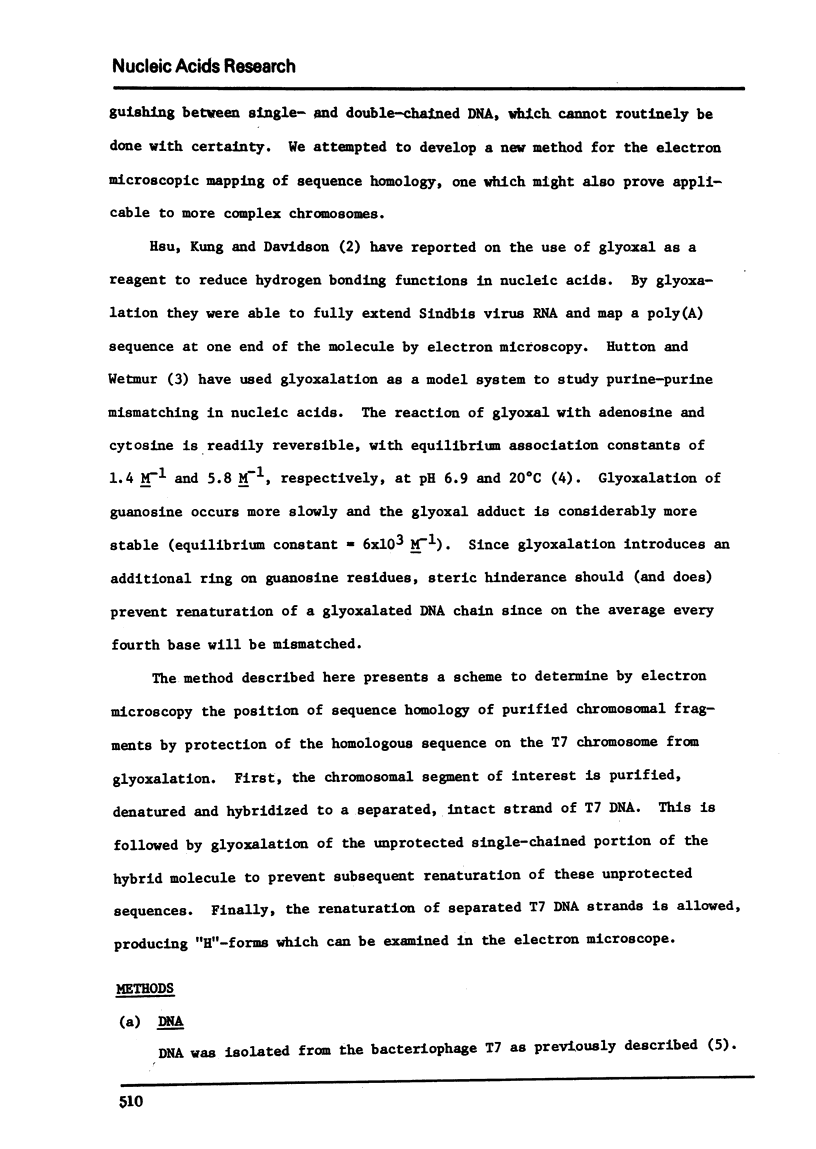
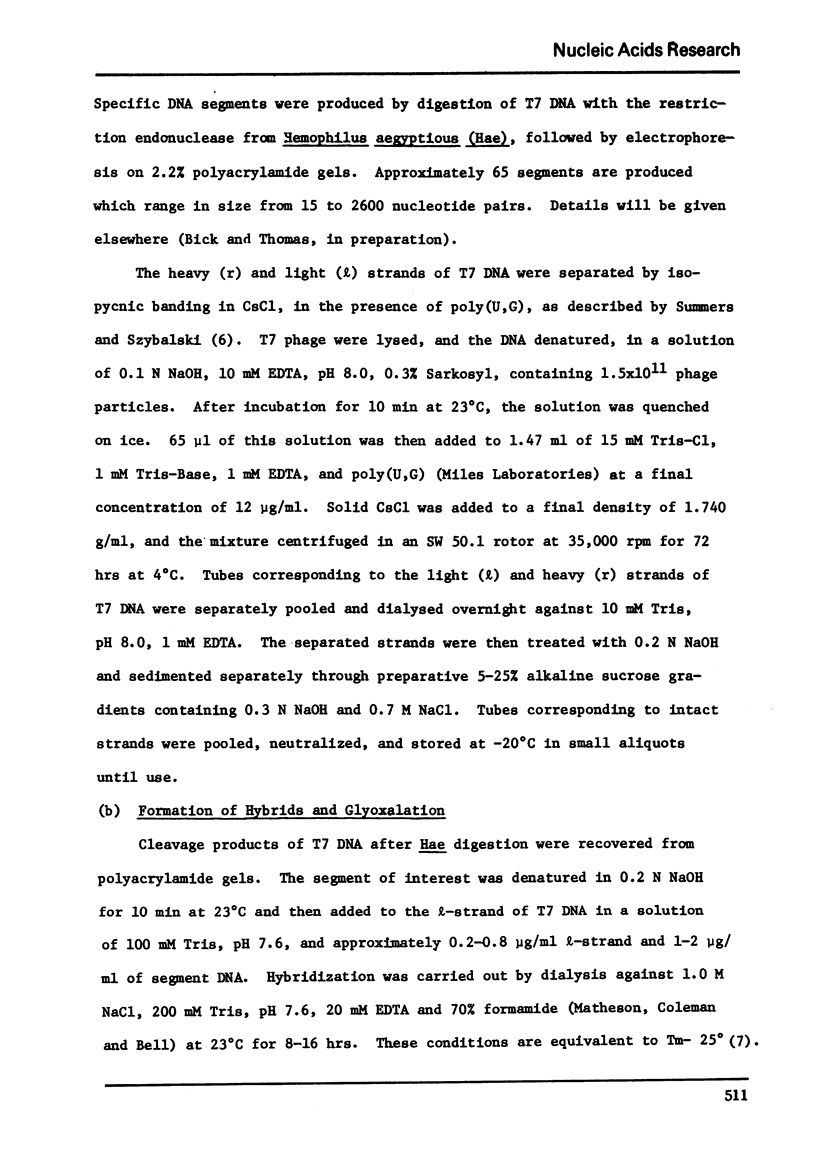
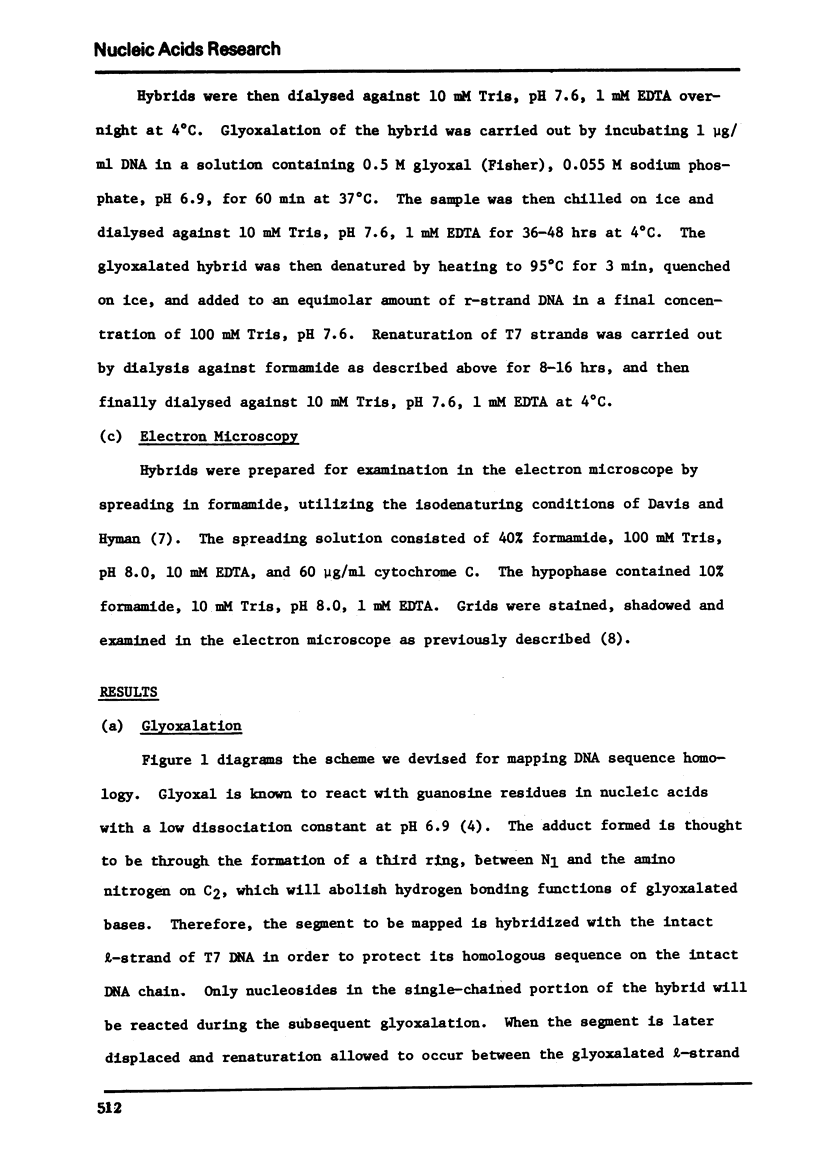
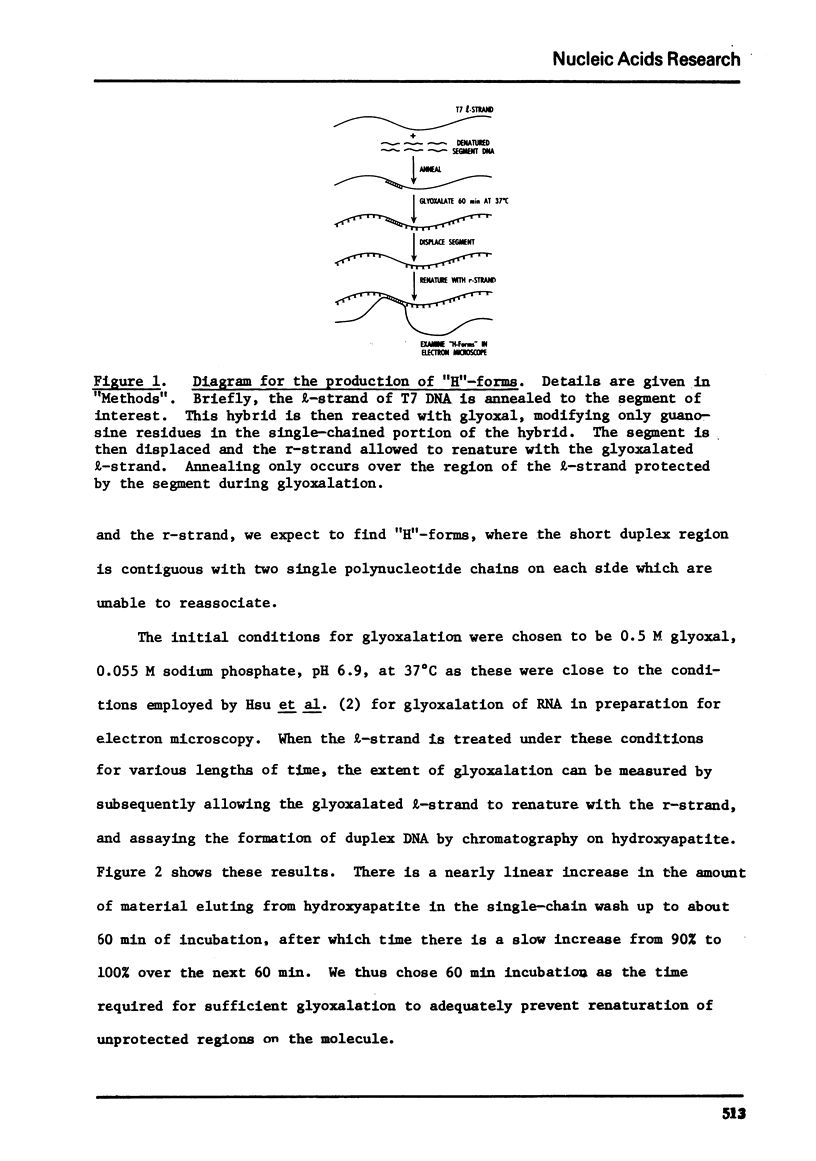
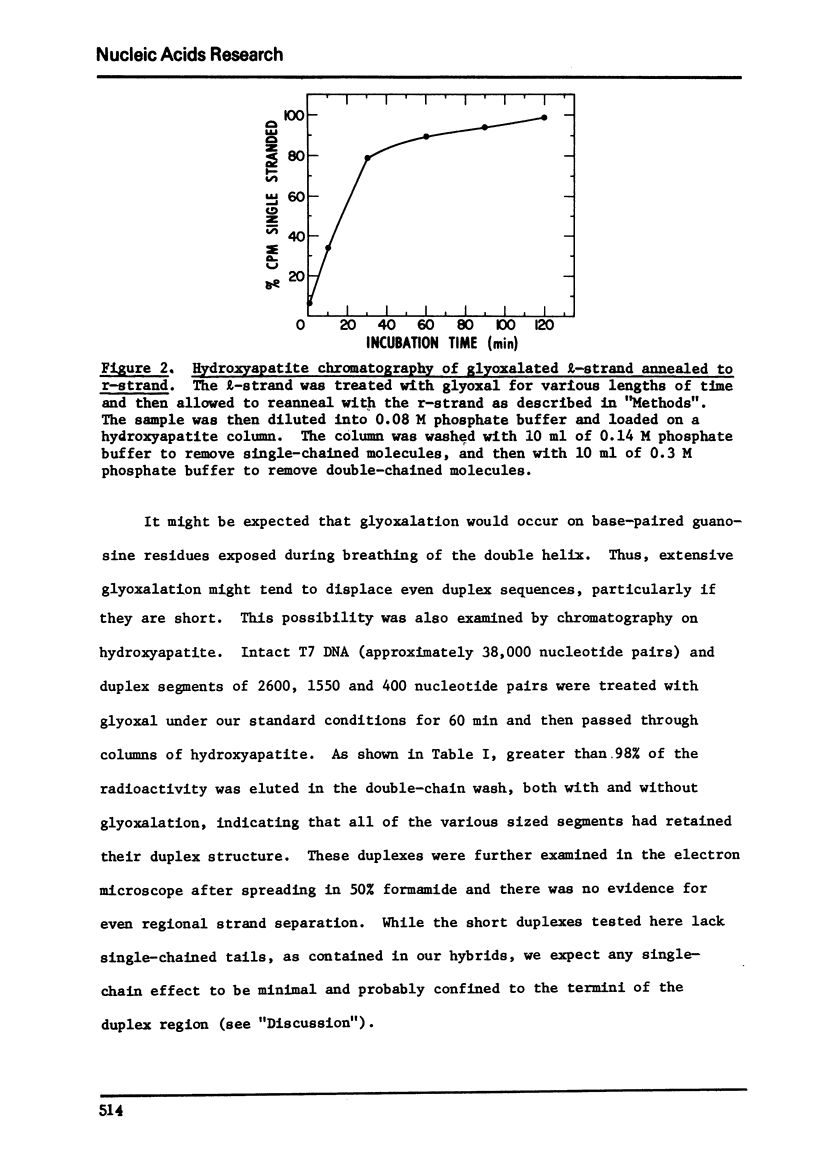
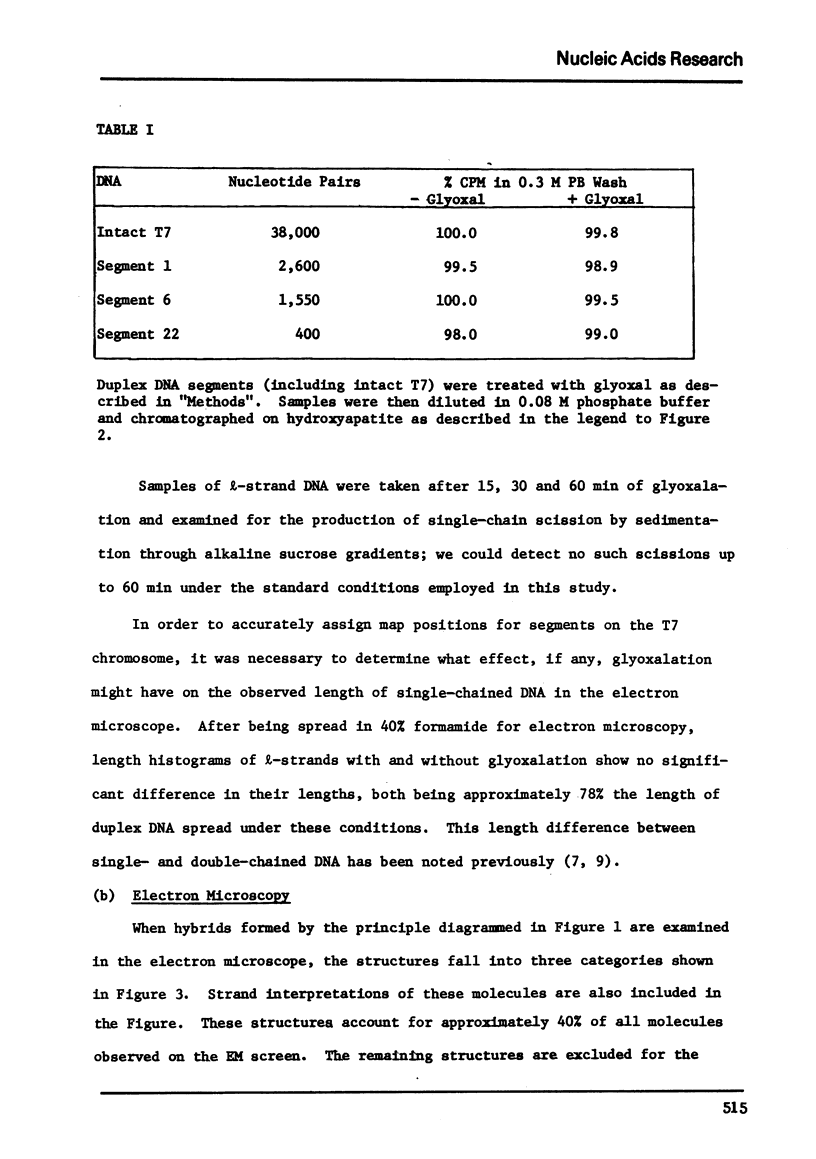
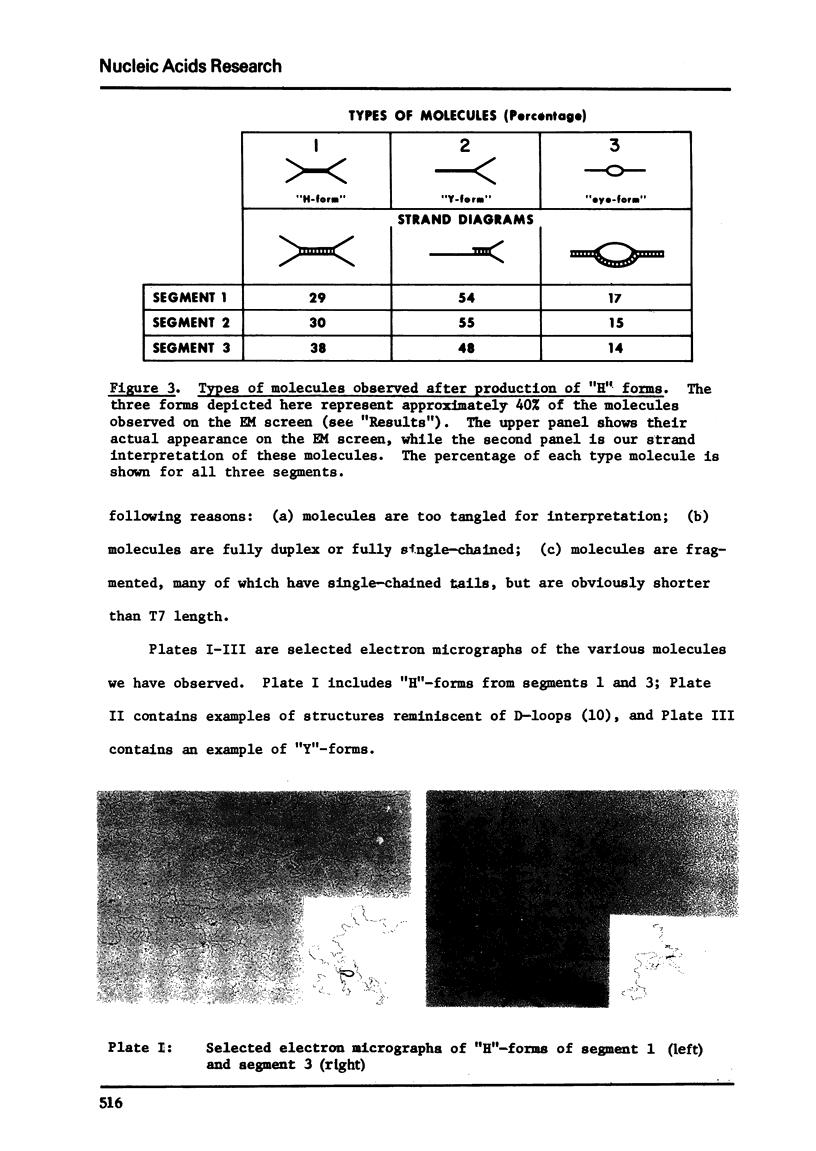
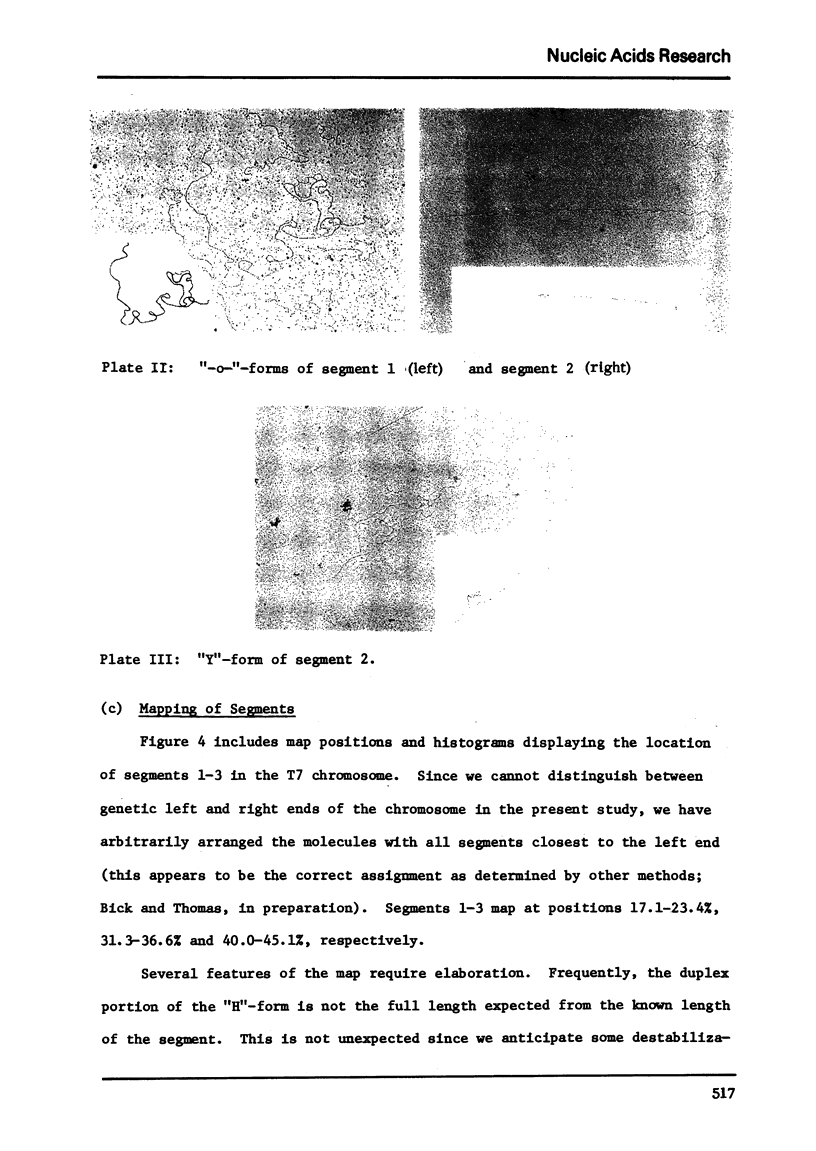
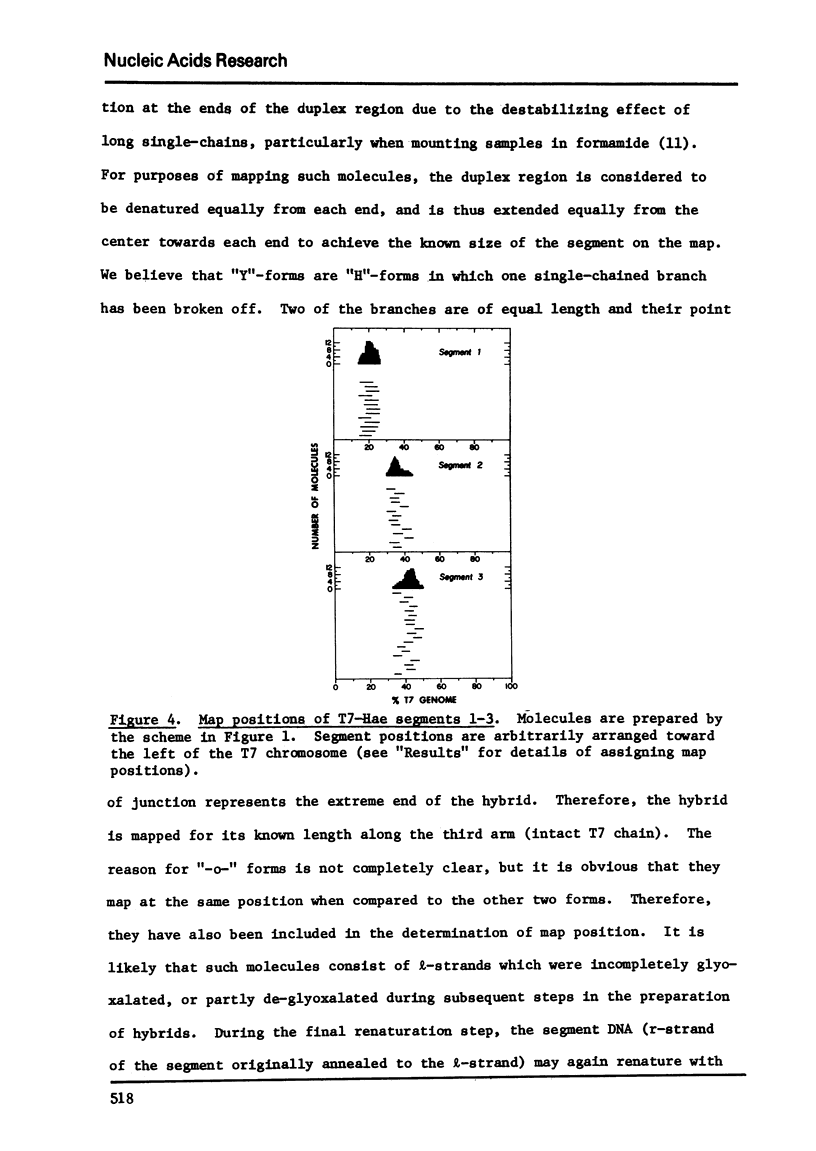
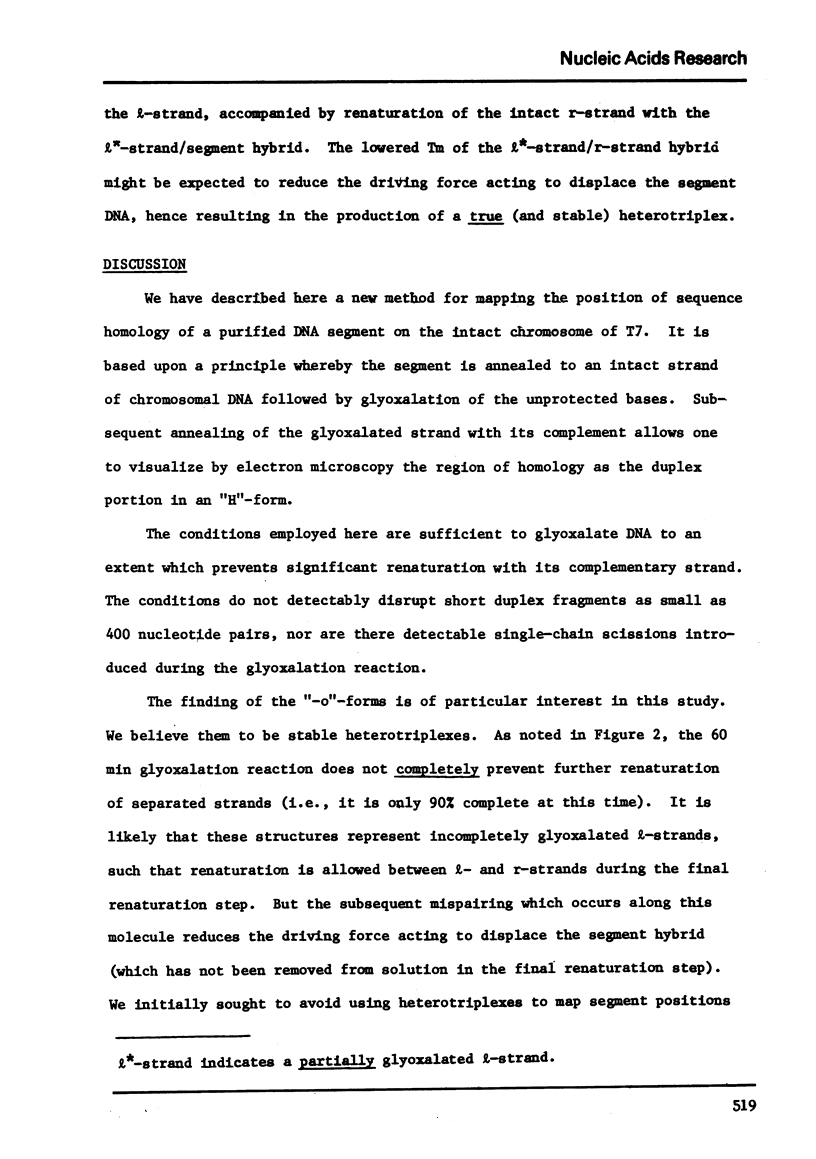
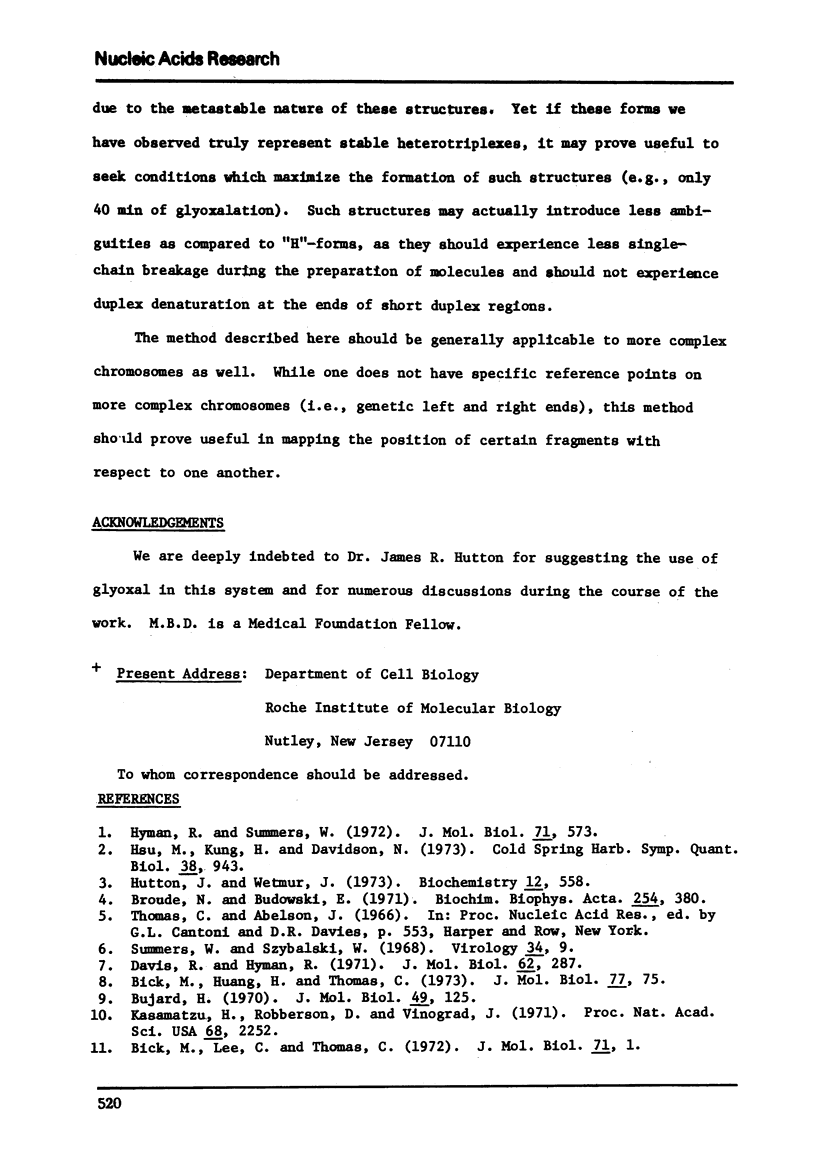
Images in this article
Selected References
These references are in PubMed. This may not be the complete list of references from this article.
- Bick M. D., Huang H. L., Thomas C. A. Stability and fine structure of eukaryotic DNA rings in formamide. J Mol Biol. 1973 Jun 15;77(1):75–84. doi: 10.1016/0022-2836(73)90363-x. [DOI] [PubMed] [Google Scholar]
- Bick M. D., Lee C. S., Thomas C. A., Jr Local destabilization of DNA during transcription. J Mol Biol. 1972 Oct 28;71(1):1–9. doi: 10.1016/0022-2836(72)90395-6. [DOI] [PubMed] [Google Scholar]
- Broude N. E., Budowsky E. I. The reaction of glyoxal with nucleic acid components. 3. Kinetics of the reaction with monomers. Biochim Biophys Acta. 1971 Dec 30;254(3):380–388. doi: 10.1016/0005-2787(71)90868-9. [DOI] [PubMed] [Google Scholar]
- Bujard H. Electron microscopy of single-stranded DNA. J Mol Biol. 1970 Apr 14;49(1):125–137. doi: 10.1016/0022-2836(70)90381-5. [DOI] [PubMed] [Google Scholar]
- Davis R. W., Hyman R. W. A study in evolution: the DNA base sequence homology between coliphages T7 and T3. J Mol Biol. 1971 Dec 14;62(2):287–301. doi: 10.1016/0022-2836(71)90428-1. [DOI] [PubMed] [Google Scholar]
- Hsu M. T., Kung H. J., Davidson N. An electron microscope study of Sindbis virus RNA. Cold Spring Harb Symp Quant Biol. 1974;38:943–950. doi: 10.1101/sqb.1974.038.01.096. [DOI] [PubMed] [Google Scholar]
- Hutton J. R., Wetmur J. G. Effect of chemical modification on the rate of renaturation of deoxyribonucleic acid. Deaminated and glyoxalated deoxyribonucleic acid. Biochemistry. 1973 Jan 30;12(3):558–563. doi: 10.1021/bi00727a032. [DOI] [PubMed] [Google Scholar]
- Hyman R. W., Summers W. C. Isolation and physical mapping of T7 gene 1 messenger RNA. J Mol Biol. 1972 Nov 28;71(3):573–582. doi: 10.1016/s0022-2836(72)80024-x. [DOI] [PubMed] [Google Scholar]
- Kasamatsu H., Robberson D. L., Vinograd J. A novel closed-circular mitochondrial DNA with properties of a replicating intermediate. Proc Natl Acad Sci U S A. 1971 Sep;68(9):2252–2257. doi: 10.1073/pnas.68.9.2252. [DOI] [PMC free article] [PubMed] [Google Scholar]






